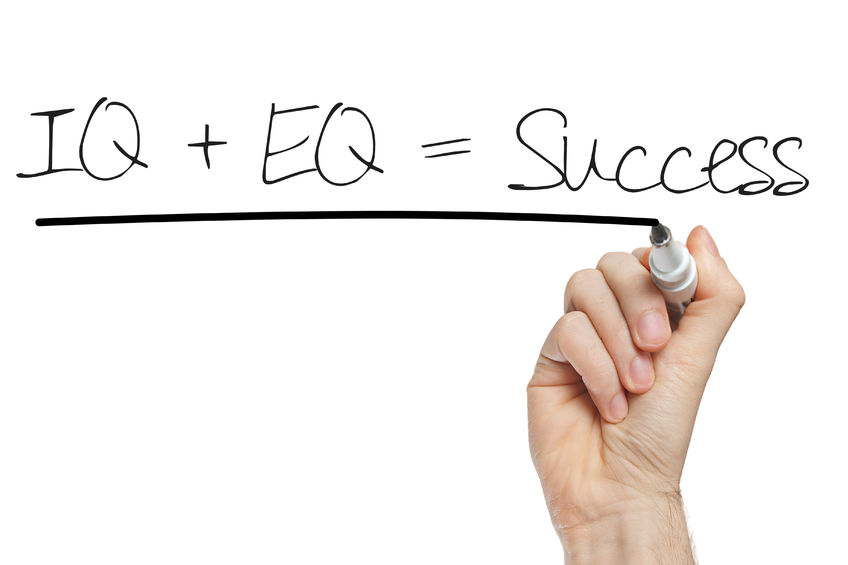A long held career axiom states, “As long as you have the right job skills, you will always be able to get a job.” In today’s crowded and competitive job market this is still true, but under going a significant shift. With this in mind, what are the job skills that will make you stand out in the crowd? The most common answer is the “hard” skills such as engineering, computer programming, accounting, medicine, etc.
There is growing momentum that identifies Emotional Intelligence as an important job skill. Work culture is in a seismic shift that should improve the work place as leaders/managers/employees possess people skills along with other hard skills. The World Economic Forum’s Future of Jobs Report identifies emotional intelligence as one of the top ten job skills in 2020.
Here are a few stats from a 2011 Career Builder Survey of hiring managers and HR professionals:
71% valued emotional intelligence (EI) over IQ in an employee.
75% would more likely promote an employee with higher EI.
59% would pass up a candidate who possessed a high IQ, but low EQ.
Why is EI important as a job skill?
Calm under pressure– high EI allows a person to not succumb to emotional swings in turbulent situations. This calm demeanor will positively affect others as the focus is on results and not feelings.
Conflict Resolution– a person with high EI is able to resolve conflict effectively
rather than reacting to people.
Empathy – people that express empathy to others in appropriate and heart-felt ways allow others to feel safe and move forward.
Authentic leadership– people with high EI model the example of a healthy culture and genuine leadership.
What does high EI look like?
- Humility- Admit and learn from mistakes
- Self-control- Keep emotions in check in order to have a thoughtful conversation on difficult issues.
- Listen more than speak.
- Receive feedback and criticism well.
- Demonstrate grace under pressure.
Bottom line– People with high EI inject calm into stressful work situations and empower others to work well together. And you can’t learn that from an engineering textbook.
To develop your EI you will need to focus on these areas:
Self-Awareness– EI starts with knowing yourself. The mark of low EI is being unaware of how you impact others.
Being Teachable– you don’t know what you don’t know. So you have to be willing to learn about yourself and others.
Welcoming Feedback– invite others to show you how you are perceived. This may be painful at first, but will allow you to make small adjustments that increase your EI.
Get a Coach– working with a coach will increase your skills in EI. This is especially true for highly task-oriented achievers.
